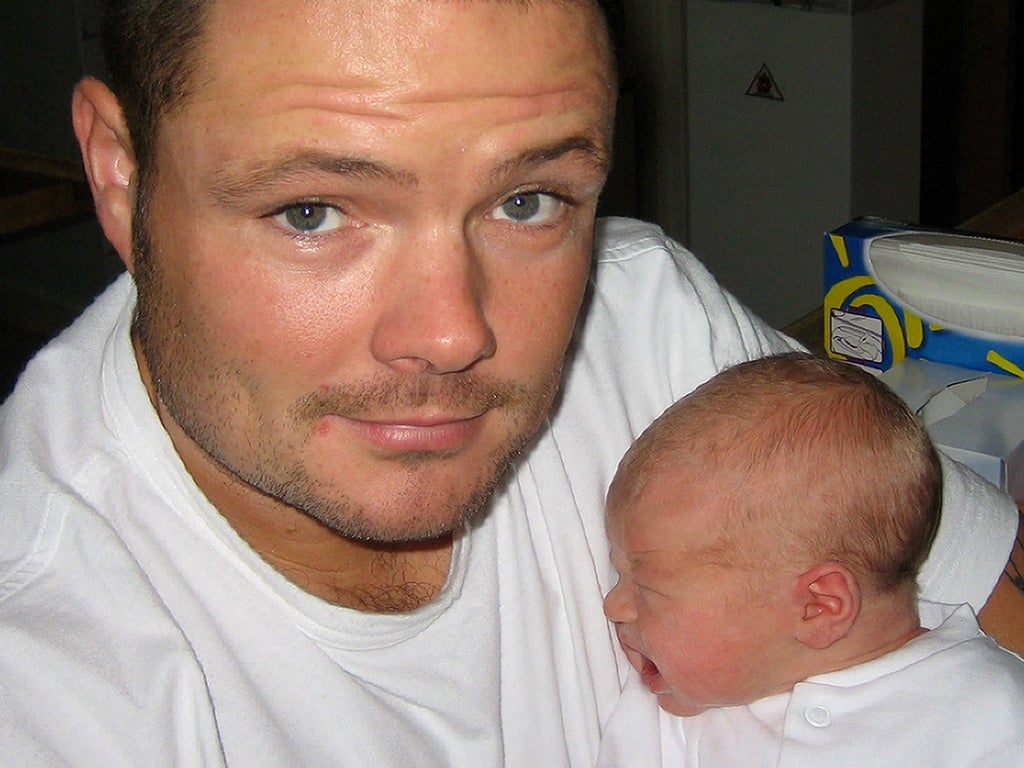Body of murdered hostage begins journey home
Five years after Glasgow man's death in Iraq, his family can finally start their grieving

When the body of the last British security guard kidnapped and murdered in Iraq five years ago is returned home this week, it will finally bring to a close one of the UK's worst hostage crises for almost two decades.
The remains of Alan McMenemy were passed to British authorities in Baghdad this weekend. Mr McMenemy, who was 34, and who came from Glasgow, was kidnapped in the Iraqi capital along with four other Britons by a Shia militia group in 2007. Only one made it out alive; the rest were shot in an escape attempt.
His widow, Rosaleen, said this weekend that she and the rest of the family could finally grieve for her husband and draw "some comfort" from the fact that his body was "home at last".
Mr McMenemy's family had to wait two years – longer than any of the other hostage families – for the body of the father of two to be repatriated. This weekend it was passed to the British embassy in Baghdad.
The remains of Jason Creswell, Jason Swindlehurst and Alec MacLachlan were returned to Britain in June 2009.
The only survivor of the group was IT worker Peter Moore, whom the four men were hired to protect. He was released six months later, in December 2009.
According to Mr Moore, all the men were routinely subjected to mock executions while held captive. He said he was beaten on a near-daily basis and that he was once savagely beaten for allegedly breaking a lock.
Mr Moore was training Ministry of Finance workers how to spot misspent money, in a government building in the green zone of Baghdad, in 2007. It was claimed that the payroll census would have revealed how many Iraqis were claiming rogue salaries for jobs they didn't do. The scam was said to be likely to run into tens of millions of pounds.
But, one morning, between 50 and 100 policemen stormed the building where Mr McMenemy and the other guards were protecting Mr Moore.
The men initially believed that they were being arrested, but when police began removing the men's clothes during the ride to Sadr City, where they were to be initially detained, in the north-eastern quarter of the capital, their worst fears were confirmed.
Far from being the police, the kidnappers belonged to the notorious Shia militia group Asaib al-Haq – the League of Righteousness. The group claimed that it had kidnapped the men for political reasons, rather than financial gain.
Mr Moore, who spent six months locked up in a room with Mr McMenemy, spoke this weekend of his time with his fellow captive.
"We were basically chained together with about two metres of chain in a room," said Mr Moore. "We were handcuffed and regularly blindfolded. We talked about a lot of things. We talked about the possibility of escape, but the opportunity just never arose when I was with Alan."
Mr McMenemy was a former soldier who had joined the private- security firm GardaWorld. He knew he faced a high risk of being kidnapped, but, given ransom insurance, he was lured by the high pay and the excitement of being in a war zone.
Along with the three other guards, he was killed in 2009 when they attempted to make an escape. The head of the Shia militia, Qais al-Khazali, said the men had taken a weapon from one of the guards in order to try to overpower their captors. A gun fight ensued, in which the four men were shot dead.
Mr Moore was being held in a separate location at the time, possibly Basra in southern Iraq. It is said he was being kept in a different place because the kidnappers believed he was of more value to them. He was finally released at Christmas in 2009, after spending 946 days as a hostage.
Discussions between the British government and Shia forces had been going on for many months to secure the repatriation of Mr McMenemy's remains. It is not yet clear why the militia waited more than two years to hand over the body.
In a statement this weekend, Rosaleen McMenemy said: "Our families have suffered terrible uncertainty and distress over the past four years and eight months. We have worried about Alan every single minute of each waking day. We now know that we will shortly have Alan home again. This will allow us to properly grieve for him and we will draw some comfort from the fact that we have him home at last.
"I would respectfully ask that we as a family are allowed the space and time to grieve in our own way and, if at all possible, to attempt to return to some form of normal life."
Join our commenting forum
Join thought-provoking conversations, follow other Independent readers and see their replies
Comments